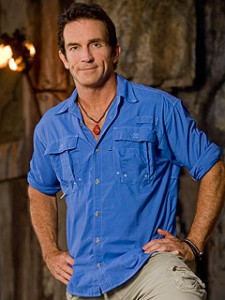Playing "PR Survivor"
Mar 28, 2013 admin
Outwit, outplay, outlast – that’s the mantra of “Survivor,” CBS’s long-running reality show pitting everyday people against one another on a tropical island. Even if you haven’t seen an episode in more than a decade, you know how the game is played – contestants vote each other off one by one until there is a lone Survivor. These players, from season to season, invariably possess a blend of intelligence, physical ability and social skills.
As someone who works in public relations by day and watches “Survivor” by Wednesday at 8 p.m., I’ve been thinking about how contestants would fare in the PR world. As my colleague and fellow “Survivor” fan Mike Parker pointed out, PR and “Survivor” both require more than sheer force or brute strength to succeed; it takes wit, wisdom, and strategy to be successful. You could be the smartest person in the office, but if you lack the requisite social graces, your career could be slowed – and your torch snuffed out.
So in the spirit of “Survivor,” let’s take a look at some of the most well-known contestants from Survivor’s history. What lessons can we learn from them? How can their actions on the show influence our careers? In some cases, what can we do to not be like them?
There’s only one way to find out. In the words of host Jeff Probst, “Come on in, guys!”
“Boston Rob” Mariano – Perhaps the most loved and hated Survivor of all time, Boston Rob participated in four seasons and won one: Survivor: Redemption Island. While Rob’s athletic prowess helped him win rewards and immunity for himself and tribemates, it was his ability to manipulate people and situations to his benefit that he’s most remembered for. Rob forged favorable alliances in each of his four seasons, and while they didn’t always work out (as his 13th place finish in one season can attest), he almost always gave himself a chance to succeed.
In the real world, flat out manipulation of media, clients or colleagues is probably a bad idea. But you might do well to work on your powers of persuasion. If you can convince a reporter that your idea is so compelling it merits interest, you’ll be in good shape, just like Rob. But tricking others is just asking for trouble.
Russell Hantz – A castaway who will live in “Survivor” infamy, Russell deployed a unique brand of ruthless, cunning and abusive gameplay across three seasons.
A brief checklist of actions that garnered Russell “villain” status:
- He dumped his tribe’s water canteens
- He burned socks belonging to fellow castaways
- He lied about his dog dying in Hurricane Katrina
Perhaps most impressively, he did all that on Day 1.
So, what can you learn from Russell that you can apply in the PR world (besides burning your colleague’s dress socks)? Like an adroit chess player, Russell thought three moves ahead at all times. He found hidden immunity idols unaided by clues. He schemed to make other alliances turn on each other. At every turn of the game, he thought through the various outcomes.
You can take a page from the Book of Russell in your everyday PR work. Take some time to think things though. Have you thought about how taking an exclusive news item to one reporter will affect your relationship with another? Have you mapped out all the critical elements of an upcoming launch and constructed a timeline for the completion of each? Have you developed a crisis communications plan in case your client’s board of directors is indicted for fraud?
Try to think like Russell – just not too much like Russell.
And speaking of someone you don’t want to be like:
Coach Wade – aka “The Dragonslayer” – represents everything you wouldn’t want in a PR person. If Coach were in your office, he’d regale you with stories of scoring front-page New York Times coverage and claim to own the agency’s largest rolodex of reporters – many of whom he’d call “friends.” But when the chips are down and client coverage is crucial, he’d fail to deliver results.
On “Survivor” Coach was unreliable, he wasn’t strong as he said he’d be in challenges, and he was easily manipulated out of an alliance with those who trusted him. Coach talked a big game, but he never came through in the clutch. In an office setting, people like Coach are annoying at best and at worst, detrimental to team performance.
Your office most likely doesn’t resemble a tropical paradise, but there are lessons you can learn from these “Survivor” legends and apply in your day to day life. Being a good PR pro means possessing a blend of skills and qualities, many of which are on display in the longtime reality series. If you can navigate a challenging terrain with many different types of characters, you’re destined for success – on an island or in the office.








